
Sign in to your Collider account
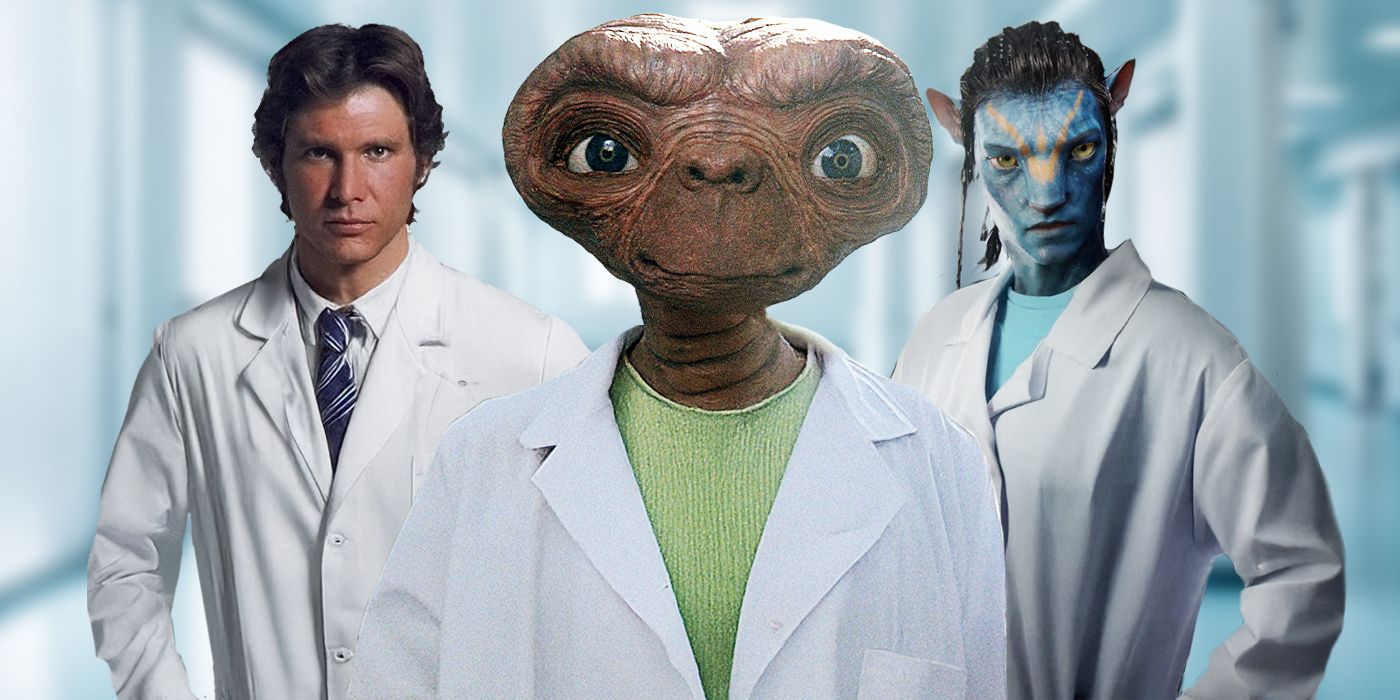 Image by Federico Napoli
Image by Federico Napoli
Science-fiction marks one of cinema’s most defining and illustrious genres, with the appeal of such stories on the screen being found not only in their meditative and cerebral ruminations on humanity, but in their awe-inspiring visual display as well. Such a marriage of technical mastery and thematic insight has defined many of sci-fi’s greatest hits on the big screen, from pioneering triumphs that date back a century to modern gems that showcase just how far the medium has advanced.
While there have been plenty of films that have exhibited these qualities to showcase the genre’s penchant for greatness, there are far fewer that have truly defined what the genre is in a cinematic sense. Ranging from innovative genre marriages to some of the most divine and celebrated pictures ever seen, these 10 films embody the history and brilliance of sci-fi cinema.
10 'A Trip to the Moon' (1902)
Directed by Georges Méliès
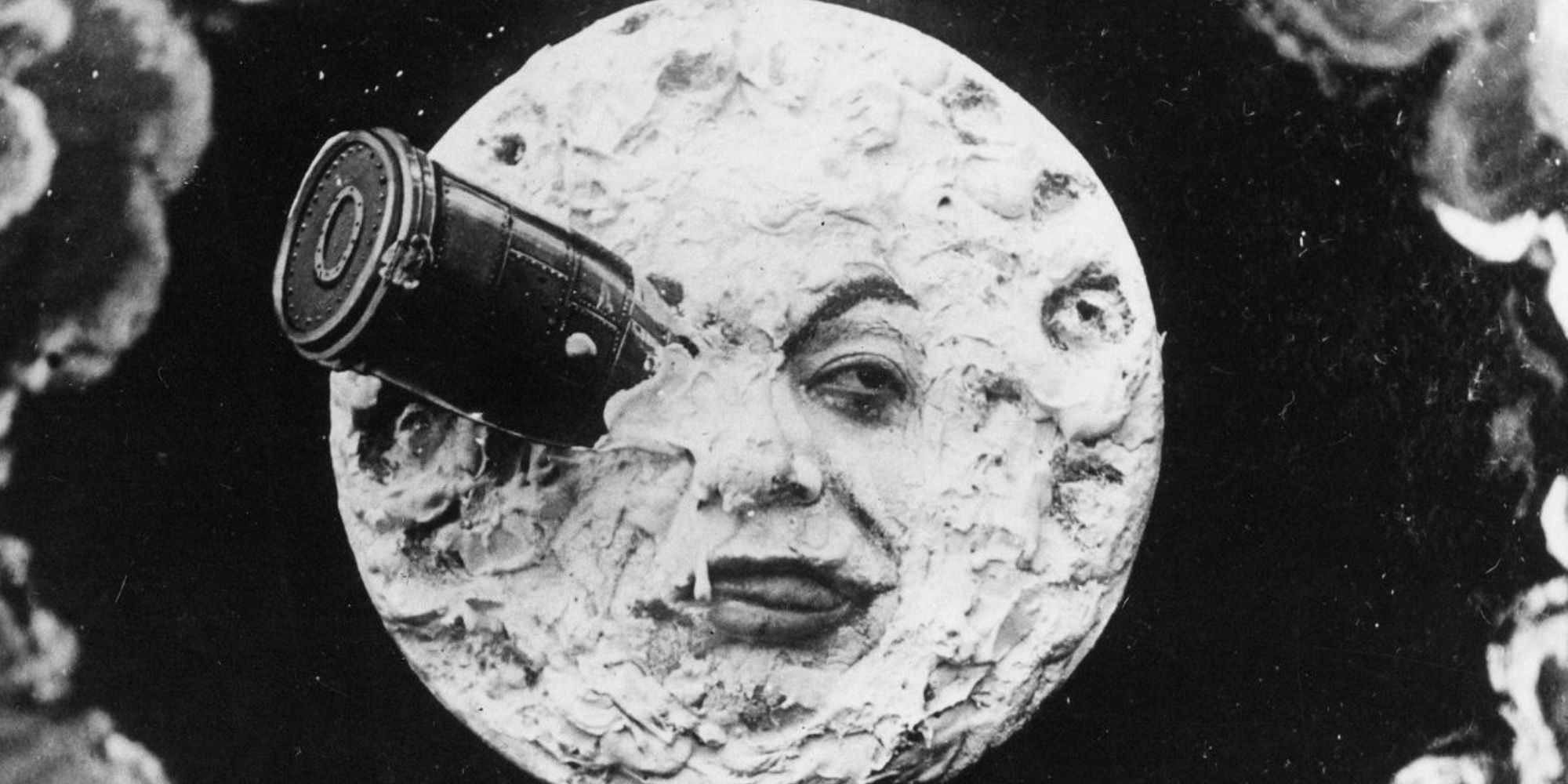 Image via Star Film Company
Image via Star Film Company As one of the first ever sci-fi films—and one of the first pictures to release to commercial success—1902’s A Trip to the Moon holds a rather distinguished spot in the annals of movie history. The spectacle is enhanced as director Georges Méliès’ falls back on his career as a stage magician to employ visual tricks and optical illusions, with the short film following a group of astronomers who embark on a trek to the moon to explore its surface.
Given the film is over 120 years old, there is a rudimentary nature to it, but it is emblematic of sci-fi cinema’s endeavor to constantly push the boundaries in terms of what is possible in production, and its appetite for stunning fans with its visual might. Much like how modern moviegoers are enraptured by the staggering feats of pictures like the Dune movies, A Trip to the Moon left audiences around the world stunned in its day. Sadly, Méliès himself saw very little reward for his success, which is today considered to be a pioneering masterpiece of the medium.
Your changes have been saved
A Trip to the Moon
Release Date October 4, 1902
Cast Georges Méliès , Bleuette Bernon , François Lallement , Henri Delannoy , Victor André , Brunnet , Depierre , Farjaut , Kelm , Jehanne d'Alcy , Jules-Eugène Legris
Runtime 15 Minutes
9 'Metropolis' (1927)
Directed by Fritz Lang
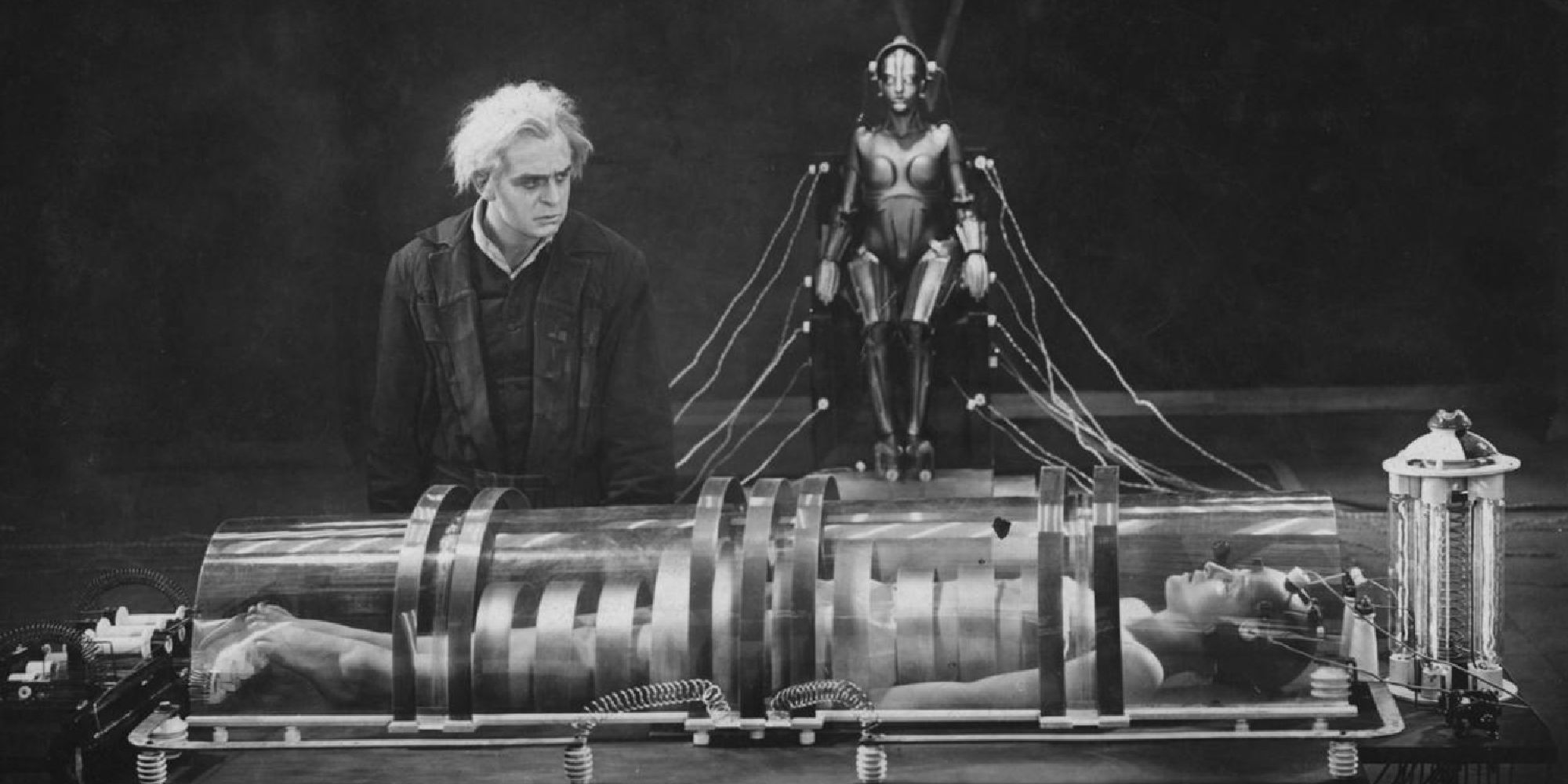 Image via Parufamet
Image via Parufamet An enduring masterpiece of the silent era, Metropolis is a dazzling marriage of science-fiction insight and the arresting visuals of German Expressionism that remains a quintessential classic for all genre lovers almost 100 years on from its release. Set in a dystopian future where city planners rule from above while workers toil away in a dismal underworld, it follows a privileged and idealistic youth as he sets about helping the city’s laborers and falls in love with a teacher in the process.
The visual magnitude of the movie has aged impeccably over the decades, as has its timeless thematic focus on the gulf between rich and poor. While sci-fi literature was adept at handling such evocative and complex topics with poise by the 1920s, Metropolis represents a pivotal point where cinema became an established vessel for such immense and through-provoking stories as well. It is the backbone of the genre’s insightful might, and it remains just as resonant and poignant today as it was in 1927.
Release Date February 6, 1927
Cast Alfred Abel , Gustav Fröhlich , Rudolf Klein-Rogge , Fritz Rasp , Theodor Loos , Erwin Biswanger
8 'Frankenstein' (1931)
Directed by James Whale
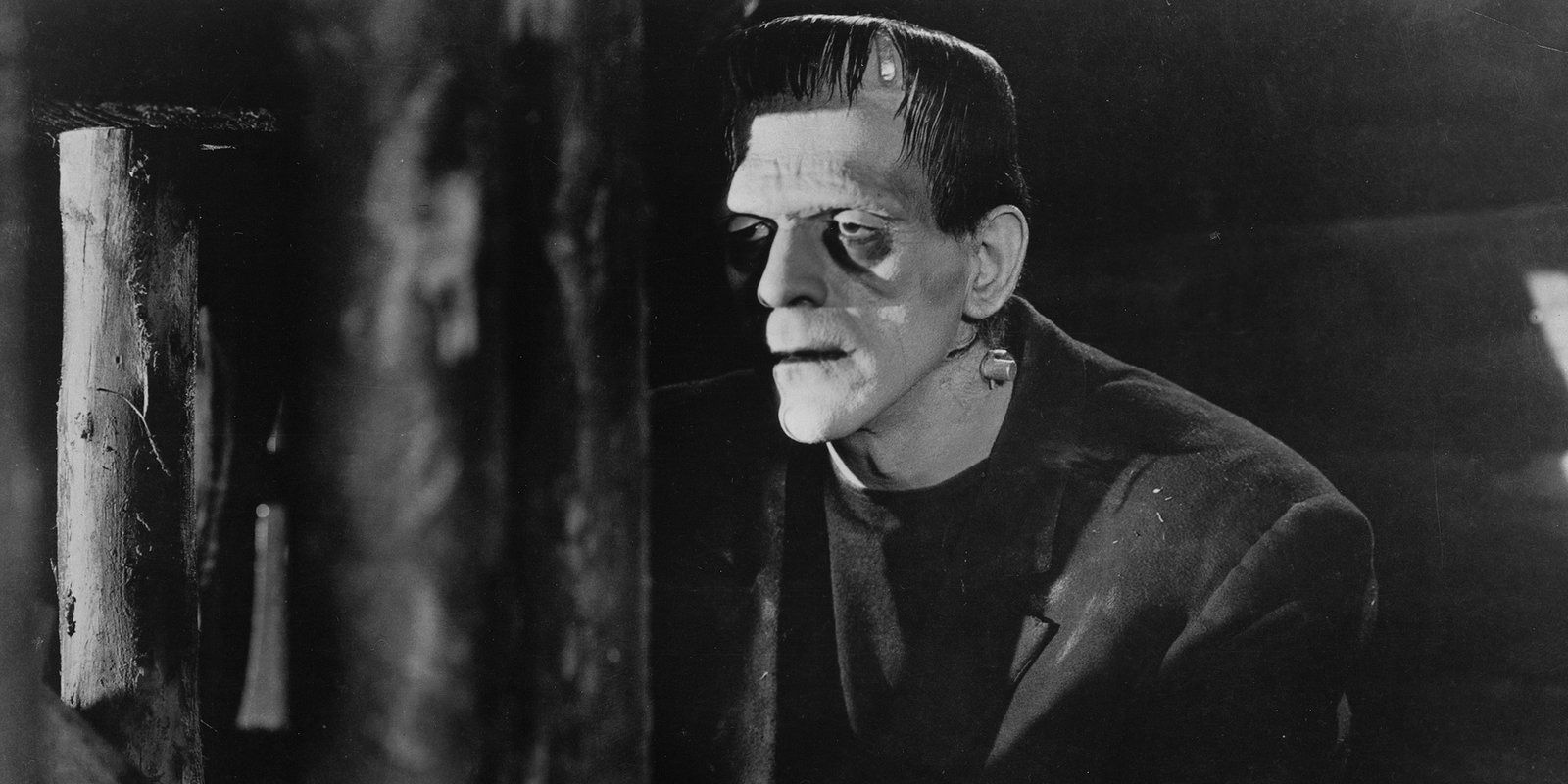 Image via Universal Pictures
Image via Universal Pictures Based on Mary Shelley’s famous book, Frankenstein represents one of the first movies to capture the interest of the world with its marriage of sci-fi and horror. While this combination may not seem immediately important, it is how science-fiction film remained relevant throughout the 1930s and even into the ‘40s, with such movies as The Invisible Man and Doctor X defining the sci-fi flicks of the era.
Such a marriage of genres has been defining of both horror and sci-fi over the years, ranging from the B-movies of the 1950s, to new wave masterpieces like Alien and The Thing, and even to modern hits like A Quiet Place. Frankenstein itself also wields a timeless and powerful story of man’s desire to play God, the responsibilities of creation, and the consequences of abandonment. Complemented by Boris Karloff’s iconic performance as Frankenstein’s monster, the pre-Code sci-fi horror is defining of sci-fi throughout the 30s and 40s, as well as being a beautiful symbol of the genre’s ability to intersect with other storytelling styles with intriguing results.
Release Date November 21, 1931
Cast Colin Clive , Mae Clarke , Boris Karloff , John Boles , Edward Van Sloan , Frederick Kerr , Dwight Frye , Lionel Belmore
Runtime 70 Minutes
7 'Invasion of the Body Snatchers' (1956)
Directed by Don Siegel
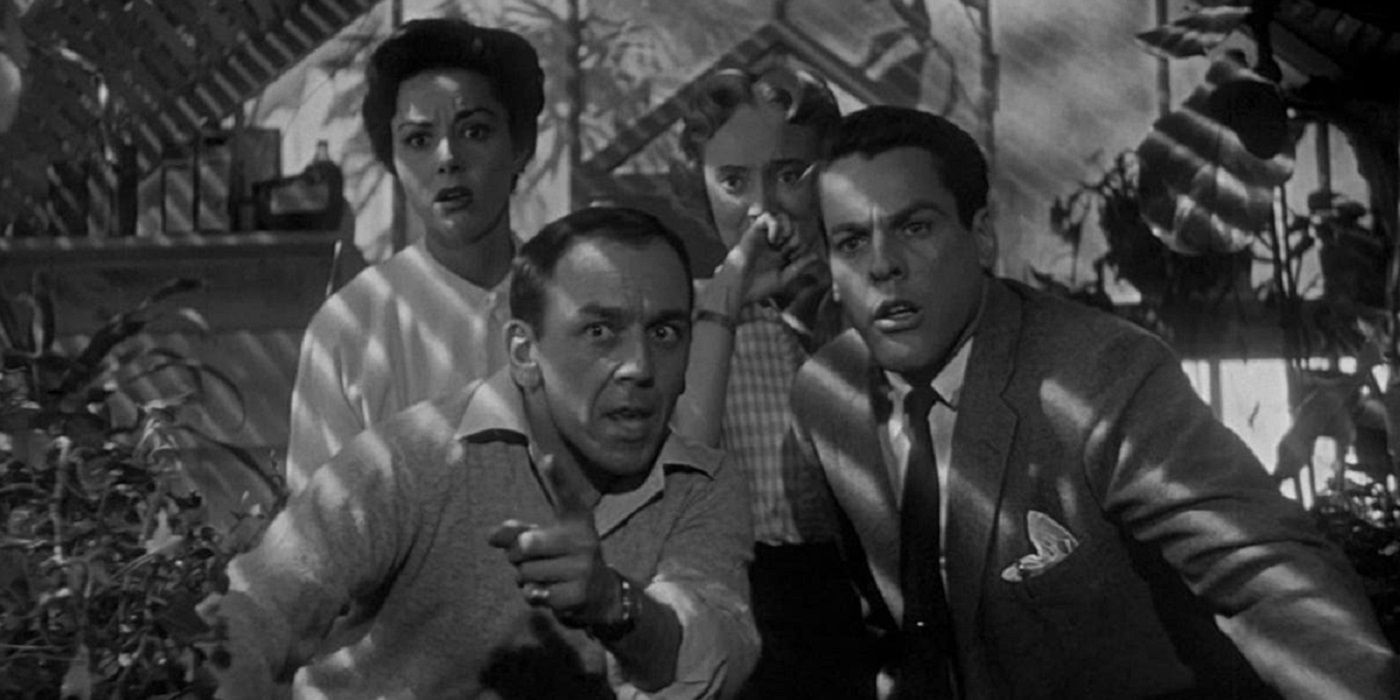 Image via Paramount Pictures
Image via Paramount Pictures Another sci-fi film rich with overtones of horror, Invasion of the Body Snatchers is perhaps the most defining and cherished entry of science-fiction’s B-movie movement of the 1950s. The era is renowned for its somewhat campy aesthetic, yet also its underlying thematic heft. Both of those qualities are on display in the 1956 classic that focuses on the invasion of an alien race replicating people then replacing them, and the efforts of a psychiatrist who discovers what is happening and tries to warn the world.
While other gems of the era like Forbidden Planet and The Fly may offer a more representative picture of the aesthetic of sci-fi in the 50s, Invasion of the Body Snatchers perfectly captures the genre's ongoing allegorical might. The tale of invasion and paranoia remains a cutting parable of contemporary anxieties surrounding communism. The fact that it has also aged gracefully as a brilliant sci-fi horror is an added testament to it craft and excellence.
Release Date February 5, 1956
Cast kevin mccarthy , Dana Wynter , Larry Gates , King Donovan , Carolyn Jones , Jean Willes , Ralphe Dumke , Virginia Christine
Runtime 80 Minutes
6 '2001: A Space Odyssey' (1968)
Directed by Stanley Kubrick
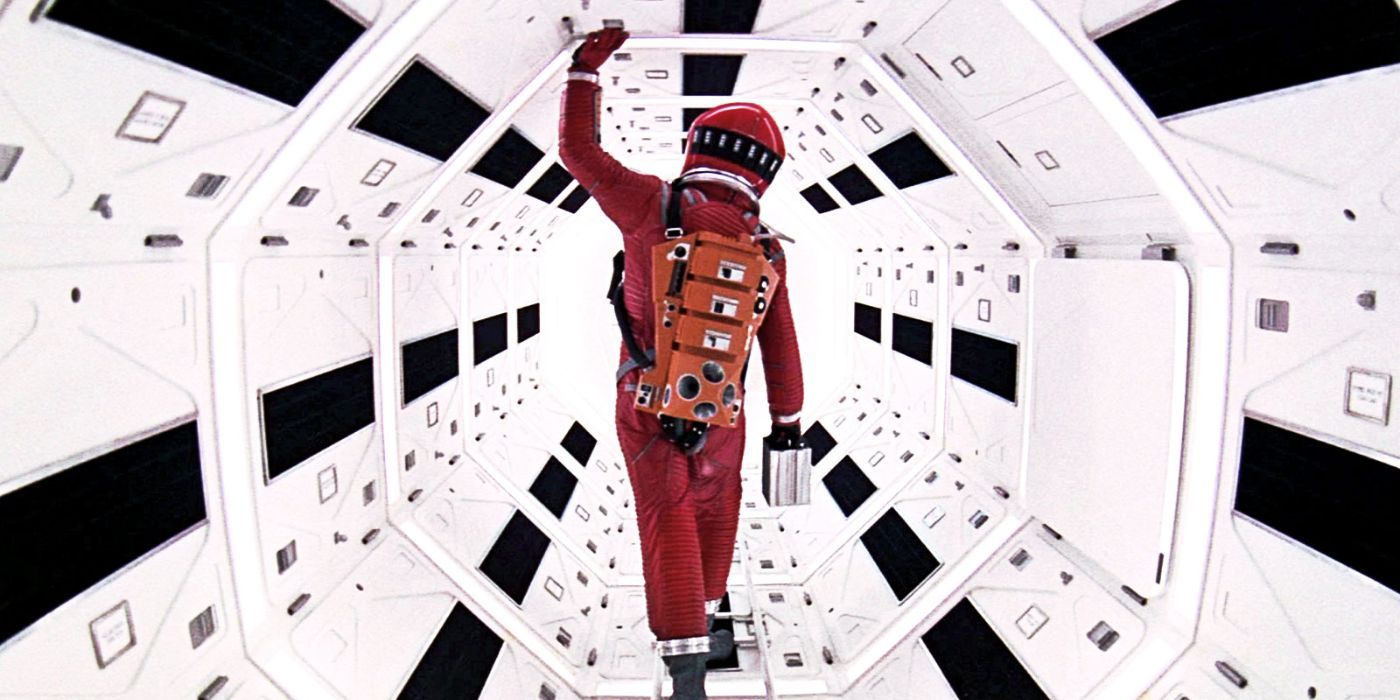 Image via Metro-Goldwyn-Mayer
Image via Metro-Goldwyn-Mayer Among the most quintessential films for any movie buff, and quite possibly the single greatest picture in the context of defining sci-fi cinema, 2001: A Space Odyssey is an epic and mystifying adventure that presents Stanley Kubrick at his very best. The winding and unwieldly story touches on the first steps of human evolution and a discovery on the moon before homing in on a crew’s mysterious mission beyond Jupiter, with the astronauts being aided by the computer system, HAL 9000.
The mind-boggling masterpiece marks a definitive point where science-fiction film went from being easily dismissed genre fare to a bastion of astute film-making craft, experimental narrative, and audacious and provocative thematic insights. It remains the gold standard of technical mastery and confronting poeticism in the genre, and is understandably considered by many to be the single greatest sci-fi movie ever made.
Release Date April 3, 1968
Cast Keir Dullea , Gary Lockwood , William Sylvester , Daniel Richter , Leonard Rossiter , Margaret Tyzack
Runtime 149 minutes
5 'Star Wars: Episode IV – A New Hope' (1977)
Directed by George Lucas
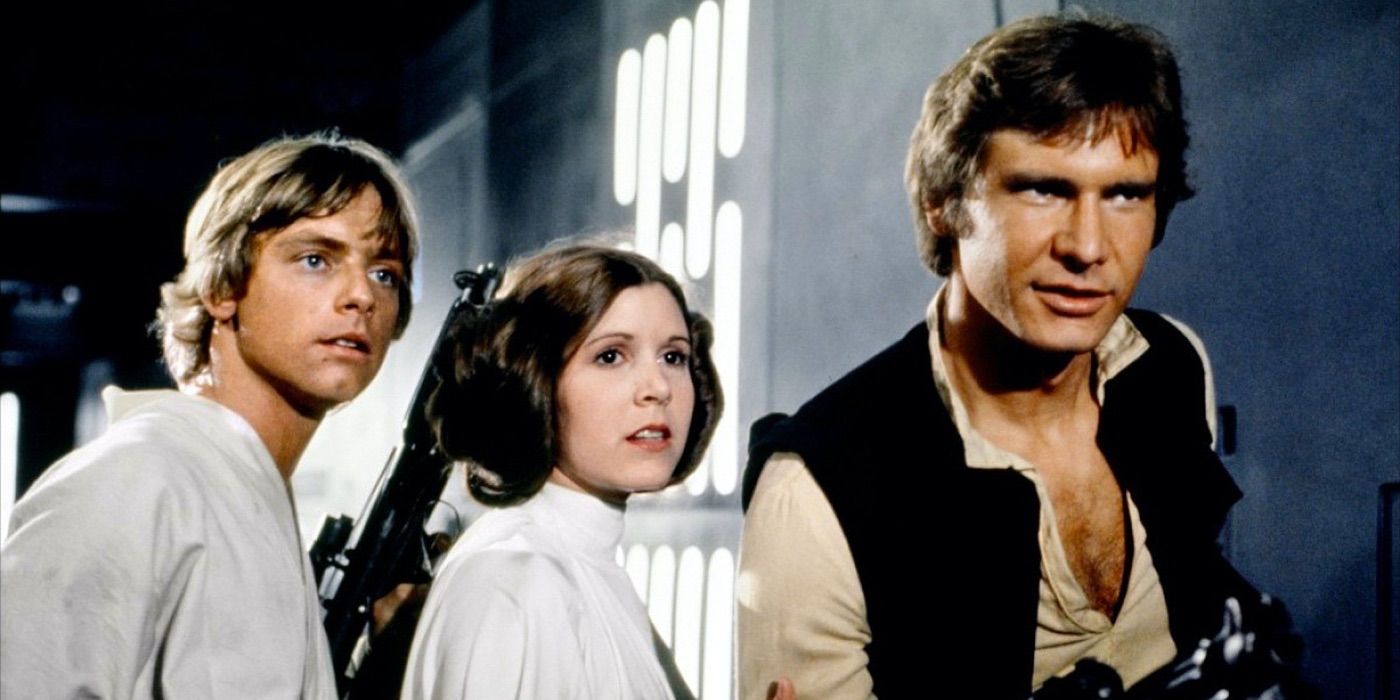 Image via Lucasfilm
Image via Lucasfilm Taking elements from Japan’s samurai cinema, Europe’s spaghetti Westerns, and a ton of inspiration from the B-movies of the 50s and meshing it all together to create a phenomenon known as the space opera, Star Wars: Episode IV – A New Hope is sci-fi cinema at its most wondrous and accessible. The Star Wars franchise at large remains one of the biggest brands the medium has ever seen, while the landmark success of the initial film helped pioneer the blockbuster experience as we know it today.
In doing this, it also popularized sci-fi fantasy adventures, and very much established the notion that science-fiction was a genre that could be enjoyed by the masses, including younger audience members. It is difficult to detail precisely what Star Wars means to science-fiction cinema given the magnitude of its impact, but the original films remain classics today for their immersive story and setting, as well as the impeccable craft behind every element of the picture.
Release Date May 25, 1977
Runtime 121 Minutes
4 'Blade Runner' (1982)
Directed by Ridley Scott
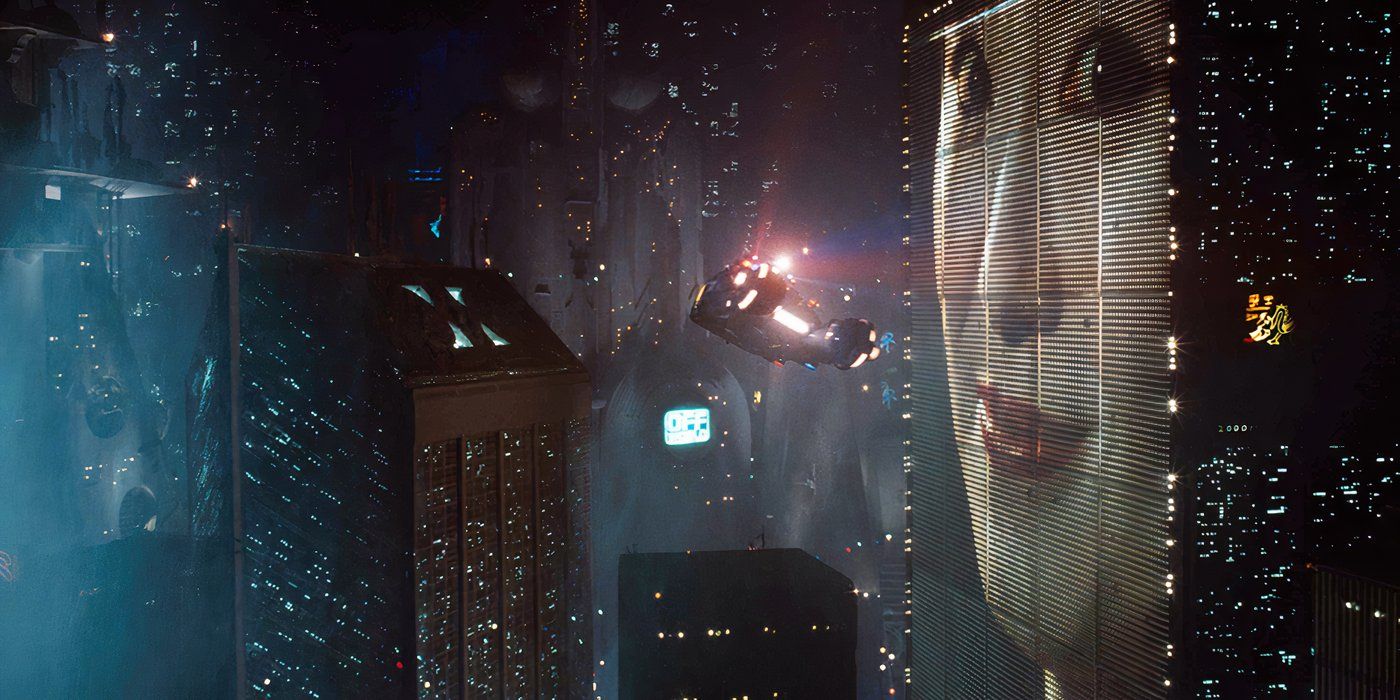 Image via Warner Bros.
Image via Warner Bros. In terms of the visual design and aesthetic of sci-fi in the back end of the 20th century and into the modern day, there is no film as influential nor as defining as 1982’s Blade Runner. The Ridley Scott classic transpires amid a neon-infused cyberpunk nightscape of beaming lights, blaring advertisements, and a bustling swarm of busy overpopulation. Mixing dystopian bleakness with eye-popping techno and packaging it all as a neo-noir spectacle has resulted in Blade Runner being among the best-looking sci-fi films of all time.
Of course, it also boasts an engaging story of humanity and want, following Rick Deckard (Harrison Ford) as he is tasked with hunting down a group of off-world replicants who have returned to Earth in pursuit of longer lifespans. With its thematic focus on the eternal sci-fi query of what it means to be human, and its stunning and visceral presentation, Blade Runner stands alongside 2001: A Space Odyssey as one of the most defining and outstanding films in the history of sci-fi cinema.
Release Date June 25, 1982
Runtime 117 minutes
Directed by Steven Spielberg
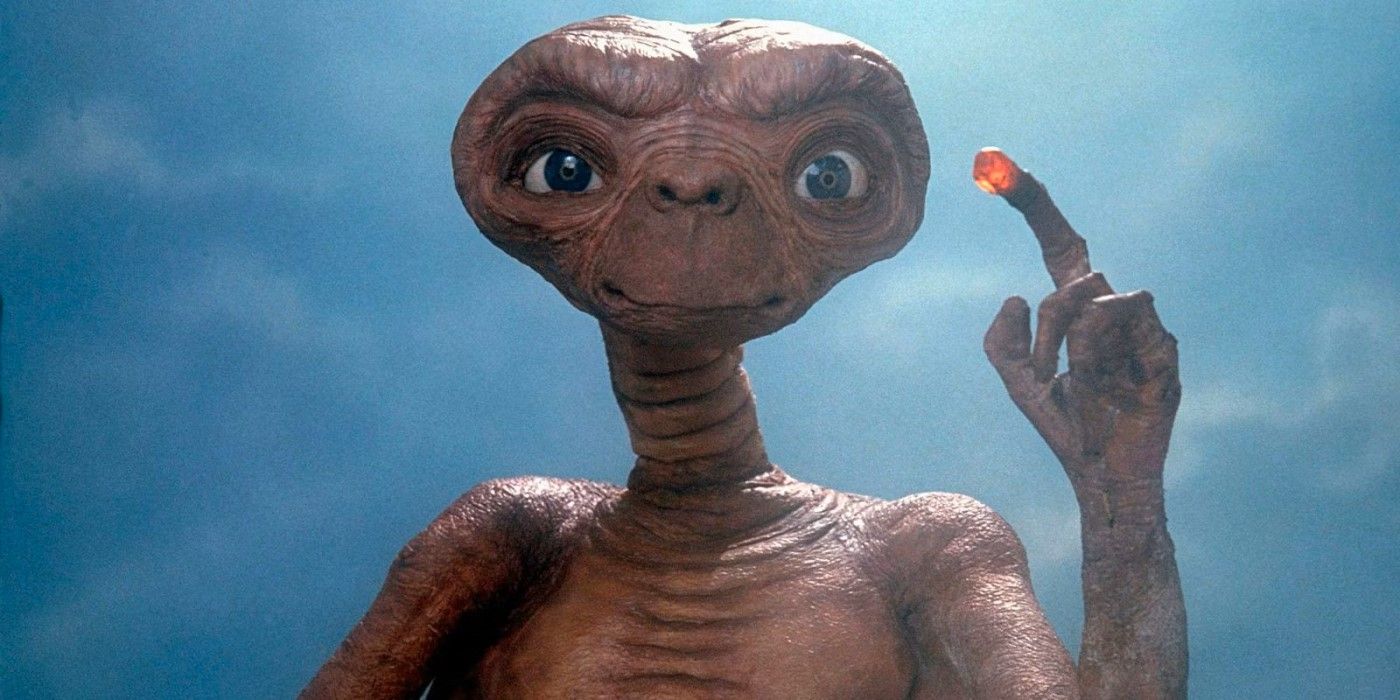 Image via Universal Pictures
Image via Universal Pictures One of the many sci-fi sensations of the 80s that thrived as a direct result of Star Wars’ landmark success, E.T. the Extra-Terrestrial presents Steven Spielberg at his warmest and most wonderful. A beautiful tale of friendship, it follows the bond that develops between a little alien accidentally left behind on Earth and Elliott (Henry Thomas), the little boy who finds him and decides to keep him sheltered as a government task force begins looking for him.
While science-fiction cinema was undergoing a pivot into darkness and thematic heft throughout the 1980s, E.T. the Extra-Terrestrial is emblematic of the imaginative, childlike awe and universal accessibility that defined many of the sci-fi blockbusters of the era. It is an enrapturing sci-fi fantasy, a magical feat of filmmaking and exceptional narrative craft that remains one of the most beloved and emotionally powerful sci-fi movies ever made. Its focus on friendship and wonder is quintessentially 80s, but its influence remains profound in modern sensations like Stranger Things.
Your changes have been saved
E.T. the Extra-Terrestrial
Release Date June 11, 1982
Runtime 1h 55m
2 'The Matrix' (1999)
Directed by Lily & Lana Wachowski
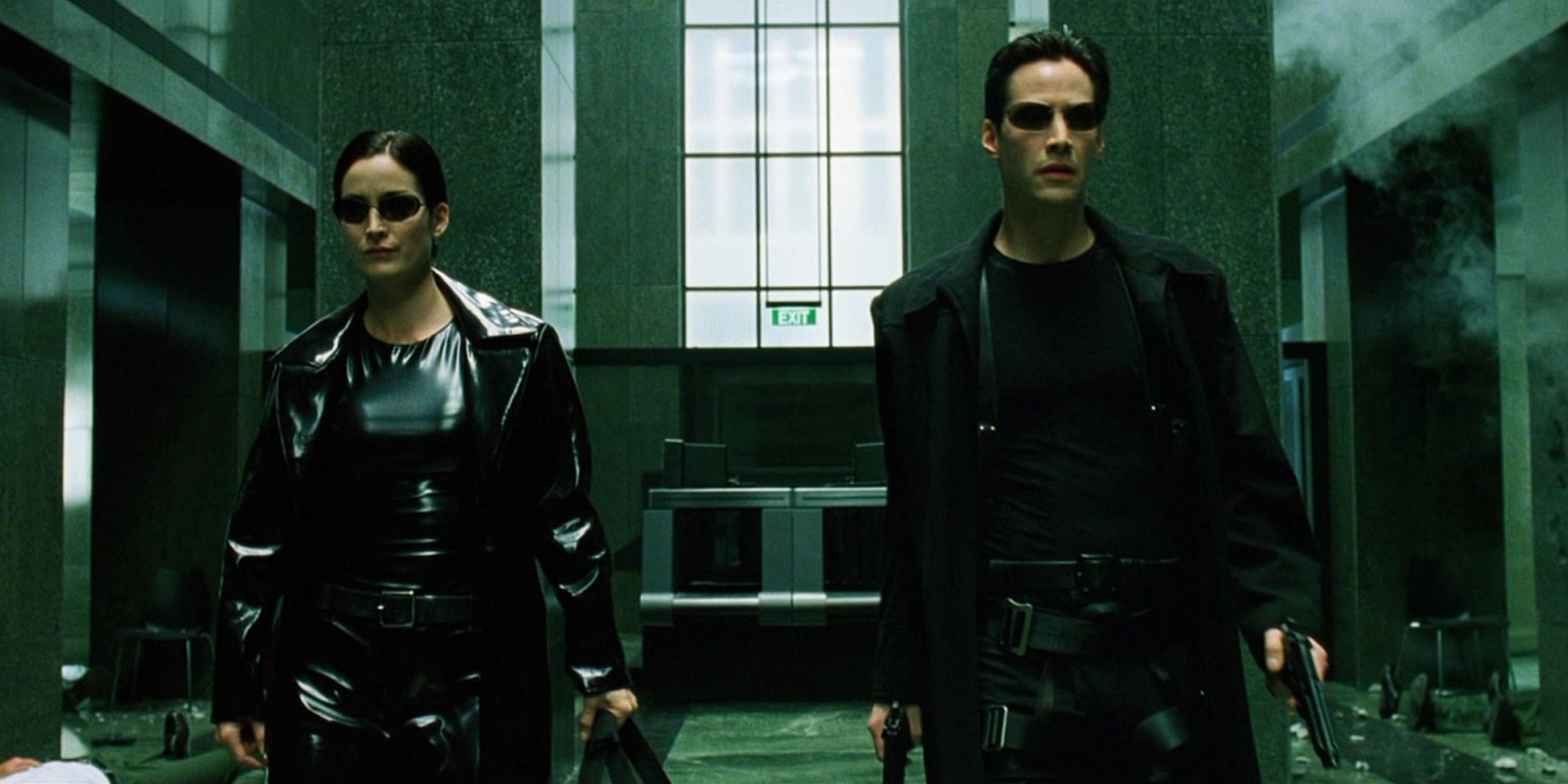 Image via Warner Bros.
Image via Warner Bros. 2024 marks the 25th anniversary of the release of The Matrix, and Lily and Lana Wachowski’s mesmerizing, mind-boggling, leather-clad cyberpunk extraordinaire remains just as overwhelmingly outstanding today as it was in 1999. It centers on Neo (Keanu Reeves), a computer hacker who becomes a prophesied hero when he learns the reality he lives in is a simulation and humanity is actually at war with an army of mechs using mankind as a fuel source.
With its slick style and its innovative use of technology, The Matrix is a groundbreaking touchstone of advancement in film that also stands as one of the most influential pictures ever made, of any genre. It also beautifully complements the aforementioned A Trip to the Moon as sci-fi bookends 20th century cinema, with The Matrix showcasing just how far the medium had evolved while still exhibiting that same appetite for technical progression and engrossing spectacle.
Your changes have been saved
The Matrix
Release Date March 31, 1999
Runtime 136 minutes
1 'Avatar' (2009)
Directed by James Cameron
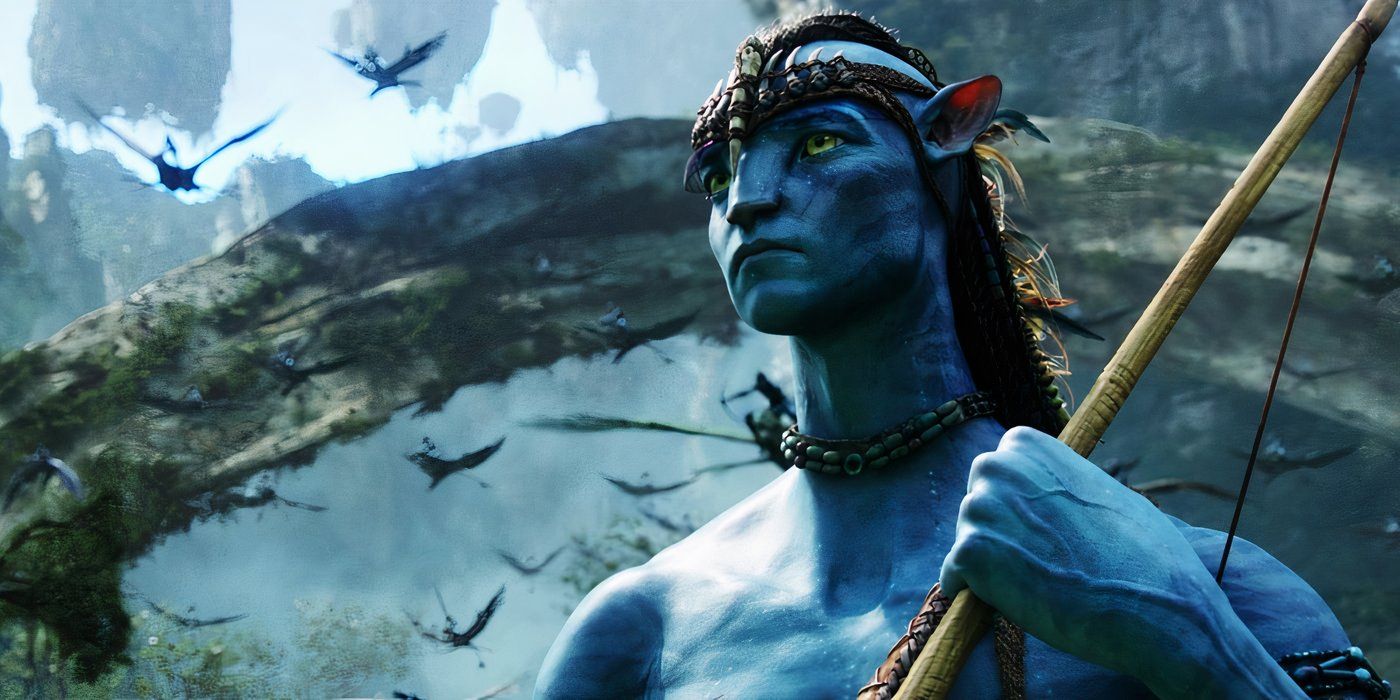 Image via 20th Century Fox
Image via 20th Century Fox Avatar, as well as its 2022 sequel Avatar: The Way of Water, is perhaps the best encompassing of science-fiction cinema at its mightiest in the 21st century. Helmed by James Cameron, the films portray humanity’s efforts to colonize Pandora in order to harvest an immensely valuable mineral. However, the aggressive tactics inspire resistance from the planet’s native people, the Na’vi. Jake Sully (Sam Worthington) becomes embroiled in the conflict when he works as part of the Avatar program and finds himself forming an allegiance with the Na’vi.
In addition to its thematically poignant story of imperialism and ecology, the Avatar films are most defined by their masterful visual display, with the world of Pandora being realized with enrapturing beauty and immense wonder. The awe of the fictitious world was only enhanced in Avatar: The Way of Water, with the production creating new motion-capture technology to film the underwater sequences, a costly endeavor that helped make the picture one of the most spellbinding viewing experiences cinema has ever seen. In this regard, Avatar is a staple of modern film, as well as a defining title of science-fiction in the modern day.
Your changes have been saved
Avatar
Release Date December 18, 2009
Runtime 162 minutes









 English (US) ·
English (US) ·